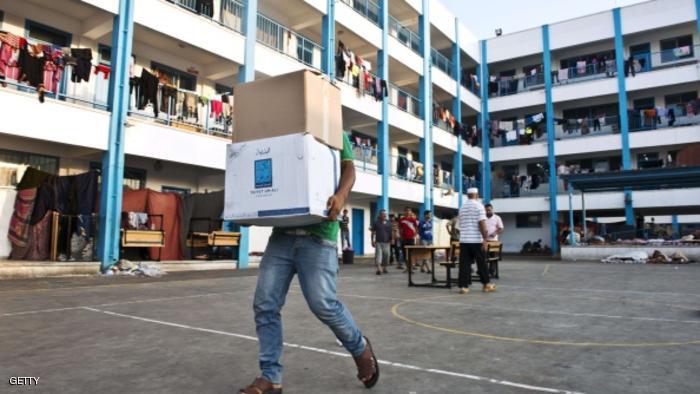Palestinians charge Israel with confiscating 371 acres in the Jordan Valley
Palestinians warned on Wednesday that Israel was confiscating 150 hectares of farmland in the Jordan Valley by moving forward with steps to reclassify the property as state land.
The technical move to change the status of the land, which has been farmed for decades by settlers, followed the conclusion of a Civil Administration of Judea and Samaria investigation into the land's proper legal status under Israeli law.
The Prime Minister's Office had no comment on the matter.
The land reclassification was widely publicized in Israel just as Netanyahu arrived in Davos, Switzerland, where he is scheduled to meet with US Secretary of State John Kerry and Vice President Joe Biden.
Both US Ambassador Dan Shapiro and US State Department spokesman John Kirby issued harsh words this week against Israeli settlement activity.
Kirby on Tuesday clarified that this opposition relates not only to the building of homes but also to "planning and retroactive legalization."
PLO secretary-general Saeb Erekat said that the Palestinian Authority leadership would soon file a complaint about settlements to the United Nations Security Council. He called on the 15 member states of the UNSC to support the resolution or figure out a way to halt settlement growth.
"You ask them [referring to Israel] to stop settlements. They are not listening to you. They are not listening to [US President Barack] Obama.... They are not listening to [German Chancellor Angela] Merkel. They are not listening to anyone," Erekat said.
"So please, when we approach the Security Council with a resolution concerning settlement activities, don't stop us; we are the victims here," Erekat told reporters as he stood next to the Israeli farmland in the Jordan Valley.
The "annexation of 1,500 dunams of land [371 acres] from the Jericho district and the Jordan Valley, near Route 1, is the biggest confiscation in two years," Erekat said.
It is also close to the settlements of Vered Yeriho, Almog and Beit Ha'arava and is under the auspices of the Megilot Regional Council.
Erekat said that Palestinians are allowed to use only 30 percent of the land in the Jordan Valley.
Closed Israeli military zones make up 54% of the land, and the settlements are located on an additional 16% of the land, he said.
The Palestinians believe that the Jordan Valley, like all land over the pre-1967 lines, is part of their future state. Israel holds that the Jordan Valley is critical for the country's security, because it borders Jordan and provides a buffer against extremist forces, such as Islamic State, Iranian proxies, such as Hezbollah, and al-Qaida.
But Erekat said that when it comes to halting Israeli settlement activity, the Palestinians have the support of the international community. He referenced Monday's statement by the EU Foreign Affairs Council, which said that Israeli settlement activity is illegal under international law.
Erekat charged that Netanyahu had chosen to transform the property into state land in direct response to the EU statement, Shapiro's harsh words and a Human Rights Watch report against companies that do business with the settlements.
These international parties called for an end to settlement construction, collective punishment, house demolitions and the displacement of Palestinians, including Beduin families, Erekat said.
"Instead of complying with the will of the international community, Netanyahu is pursuing his policy of misleading and deceiving the world," Erekat charged.
There is an "apartheid system" in the West Bank that posses a threat to the two-state solution, Erekat said.
The civil administration said that a decision had been taken by the political echelon for professionals to evaluate the status of the land. "The declaration of state land is in its final stages," the civil administration said.
There will be a 40-day objection period before such a declaration takes place. Giving the property the status of state land will make it easier for the farmers to use it















ليست هناك تعليقات:
إرسال تعليق